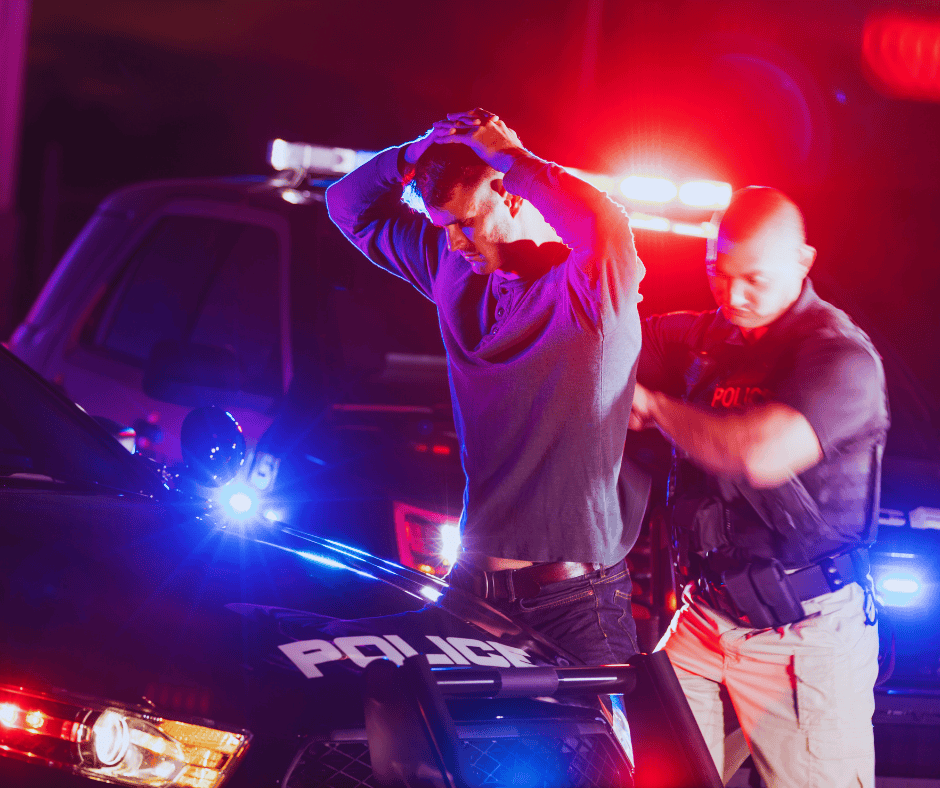5 Tips for Dealing with the Police in North Carolina

Nervous about police encounters?
After many news stories across the nation of police misconduct and other instances of police abuse, few relish the thought of being approached by a law enforcement officer. If you’re facing arrest for criminal charges, your interaction with police officers is even more strained and nerve-wracking.
What you have to remember in these situations is that you have rights. Speak with a criminal defense lawyer as soon as possible when facing legal issues, and remember these five tips when dealing with the police.
Tip #1: Don’t Lose Your Cool
Whether your encounter with the police begins with a traffic stop, a situation in a public place, or at the front door of your home, there will likely be a lot of emotions being felt. Fear, nervousness, irritation, frustration, and even anger are all common feelings during police interactions.
It’s important, however, to remain calm during your dealings with law enforcement. The moment you become angry, agitated, or hostile, you could be perceived as a threat to the police officer.
Even letting your nerves get the best of you with fidgeting and other nervous physical reactions can cause police to become even more suspicious, which could lengthen the ordeal.
Take a breath. Clear your head. Take your time and think about your next steps or words carefully.
Tip #2: Keep Your Hands in Plain View
We don’t always think about what we do with our hands. Our gestures are usually performed naturally and without much forethought.
However, when dealing with police, you must consider where your hands are. Officers are trained to neutralize threatening or dangerous situations using force, if necessary. They don’t know you, so you could be capable of anything from their perspective.
Keep your hands in view at all times, and refrain from touching the police officer. This will ensure your safety and also make the officer feel safe.
Tip #3: Remain Silent
“You have the right to remain silent.” There’s a reason this statement has always been read at the beginning of the reading of Miranda Rights.
According to the Fifth Amendment, no one is required to speak in a situation where they might be forced to incriminate themselves.
This is crucial… You don’t have to answer any questions the police ask you. If they have probable cause to arrest you, they will. If they don’t, they may want to try to get you to admit to something so they can arrest you.
Never confess to wrongdoing and remain silent if you wish to exercise that right.
Tip #4: Remember Your Rights
Speaking of your rights—aside from your right to remain silent, you would be wise to remember all of your other rights during police interactions as well.
Here are some of the most important rights and privileges you have during a police encounter.
The Right to Know Why You’re Being Stopped or Detained
Law enforcement can’t detain you without explanation. If a police officer has performed a traffic stop on you, you have the right to know why you’re being stopped.
If you’re being arrested, you have the right to know what probable cause—or “reasonable suspicion”—the officer has for the arrest or what the charges are according to the arrest warrant.
Everyone has the right to know what is happening to them and what they’re being accused of when dealing with the police.
The Right to Refuse Unlawful Searches
Under the Fourth Amendment, you are protected from “unreasonable searches and seizures” by law enforcement or any other government entity. This means that police need probable cause to search your body or property or a search warrant.
However, this doesn’t mean that police won’t try to perform a search. They may ask you if they can search your vehicle or your person, but you can say no if you’re not under arrest, if they don’t have a search warrant, or if there is no probable cause.
The Right to Speak With an Attorney
You can speak to a criminal defense lawyer at any time during an encounter with law enforcement. If you’ve been arrested or feel that your rights are being violated by police, a request to speak with an attorney needs to be honored by the police immediately. You never have to answer questions without legal representation.
Tip #5: Don’t Battle with Law Enforcement Officers
When you haven’t done anything wrong or feel like your rights are being violated, it’s hard not to fight back. After all, it can be an insulting, infuriating, and unacceptable situation to be violated in this way.
However, debating with law enforcement is never recommended. The confrontation could get heated quickly. You could find yourself in a dangerous or damaging situation if you lose your cool or try to physically resist officers.
If you feel your rights aren’t being observed by the police or you’re being accused of a crime you didn’t commit, it’s recommended that you simply act as neutrally as possible without admitting fault.
Don’t resist arrest—save the arguments for the courtroom.
Contact a Winston-Salem Criminal Defense Attorney
Dealing with law enforcement officers isn’t easy. It can be irritating, and it can sometimes be downright scary. However, the direction that this interaction takes can make a big difference in a criminal conviction.
Remember these tips when dealing with police, and always remember that you have rights.
If you’ve been arrested for a crime, contact a lawyer immediately. A civil rights attorney can review your case and determine if your rights were violated and whether improper police conduct could affect the results of your case.
